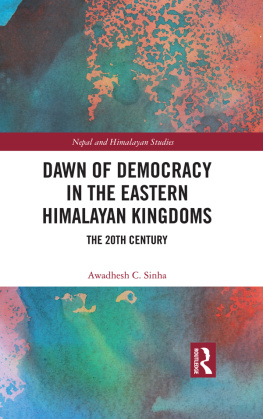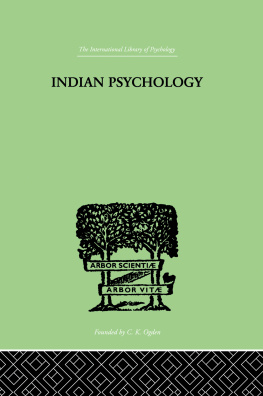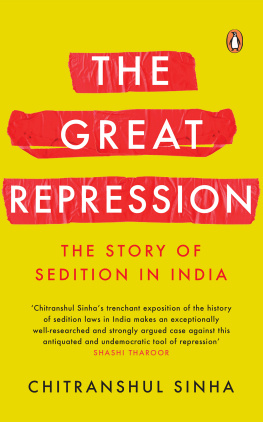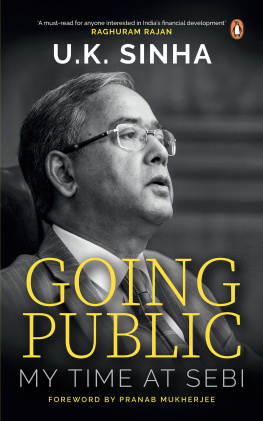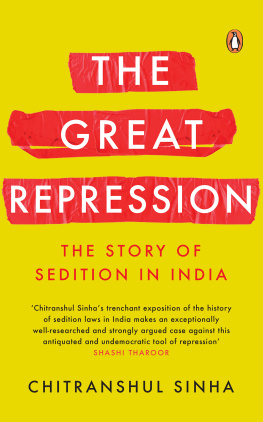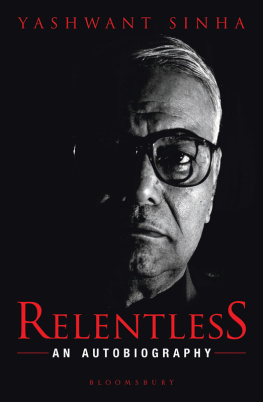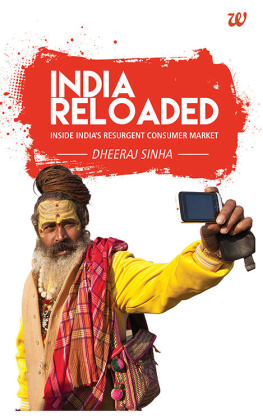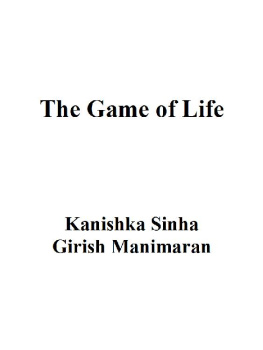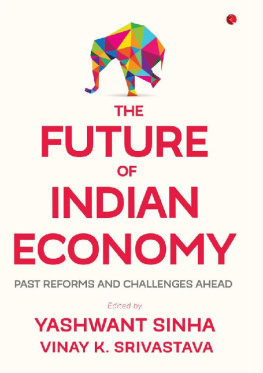Political Imaginaries in Twentieth-Century India
Critical Perspectives in South Asian History
Series Editors
Janaki Nair (Jawaharlal Nehru University, India)
Mrinalini Sinha (University of Michigan, USA)
Shabnum Tejani (SOAS, University of London, UK)
Editorial Board
Nira Wikramsinghe, Leiden University, Netherlands Willem van Schendel, University of Amsterdam, Netherlands Carole McGranahan, University of Colorado Boulder, USA J. Devika, Centre for Development Studies, Trivandrum, India
Farina Mir, University of Michigan, USA
Daud Ali, University of Pennsylvania, USA
Samira Sheikh, Vanderbilt University, USA
Nandini Chatterjee, University of Exeter, UK
Sunil Amrith, Harvard University, USA
Critical Perspectives in South Asian History publishes critically innovative scholarship on South Asian history from the ancient world to the present day. It focuses on three broad scholarly developments; a growing engagement with public history in South Asia, a conceptual shift that assigns agency to South Asia as the generator of research rather than the object of it, and a concerted effort to study histories of neglected regions, peoples, methods and sources.
Forthcoming:
Workplace relations in Colonial Bengal: The Jute Industry and Indian Labour 1870s1930s, by Anna Sailer
Forms of the Left in Postcolonial South Asia: Aesthetics, Networks and Connected Histories,
Edited by Sanjukta Sunderson and Lotte Hoek
Towards a Peoples History of Pakistan:(In)audible Voices, Forgotten Pasts, Edited by Kamran Asdar Ali and Asad Ali
The YMCA in Late Colonial India: Modernization, Philanthropy and American Soft Power in South Asia, by Harald Fischer-Tin
The Emergence of Brand-Name Capitalism in Late Colonial India: Advertising and the Making of Middle-Class Conjugality, by Douglas E. Haynes
Political Imaginaries in Twentieth-Century India, by Mrinalini Sinha and Manu Goswami
Political Imaginaries in Twentieth-Century India
Edited by
Manu Goswami and Mrinalini Sinha
For Toshi Goswami and Premini Sinha
Contents
Partha Chatterjee is a Senior Research Scholar in Anthropology and Middle Eastern, South Asian, and African Studies at Columbia University, USA. He is the past director of the Center for Studies in Social Sciences, Kolkatta, India.
Satish Deshpande is Professor of Sociology at the University of Delhi, India.
David Gilmartin is Distinguished Professor of History at North Carolina State University, USA.
Manu Goswami is Associate Professor of History at New York University, USA.
Mary E. John is Professor at the Centre for Womens Development Studies, New Delhi, India.
Michael Levien is Associate Professor of Sociology at Johns Hopkins University, USA.
Karuna Mantena is Associate Professor of Political Science at Columbia University, USA.
Nivedita Menon is Professor of Political Theory at Jawaharlal Nehru University, Delhi, India.
Eleanor Newbigin is Senior Lecturer in History and Gender Studies at SOAS, University of London, UK.
Aditya Nigam is Professor of Social and Political Theory at the Center for Developing Societies, Delhi, India.
Kalyani Ramnath is Prize Fellow in Economics, History, and Politics at the Center for History and Economics and Lecturer at Harvard University, USA.
Anupama Roy is Professor of Political Science, Jawaharlal Nehru University, Delhi, India
Mrinalini Sinha is Alice Freeman Palmer Professor of History at the University of Michigan, USA.
Ujjwal Kumar Singh is Professor of Political Science, University of Delhi, India.
Manu Goswami and Mrinalini Sinha
This volume reconsiders Indias twentieth century through a specific focus on the concepts, conjunctures, and currency of its distinct political imaginaries. It represents a first attempt at grasping the shifting modes and meanings of the political in India with specific relation to the twentieth century, understood in qualitative terms as inaugurating new conjunctures and forms of the political rather than in the more familiar sense of a neutral chronological period. This conceptual ambition, of linking the political to shifts in historical temporality, extends the volumes reach beyond the interdisciplinary arena of South Asian studies to cognate late colonial and postcolonial formations in the twentieth century.
The impetus behind this volume, which is based on papers that were presented at two conferences held in New Delhi, India, and in Ann Arbor, United States, in 2014, comes from the convergence of certain historical conjunctures. The revival has been fueled in part by the global financial crisis of 2008 and by the explosion of popular protests and struggles across the world, often indexed under the shorthand Arab Spring moment, which in India came in the form of the Anti-Corruption Movement of 2011. It has brought renewed attention to the remit of both politics and Politicswith a capital P (to do with matters of the state). In the intervening years, between the conferences in Delhi and Ann Arbor and the ushering of this volume to press, this renewed interest has only become more urgent: as the rise of right-wing and left-wing populisms across the world has brought the relationship between liberal democracy and late capitalism into question.
The scholarly currency of the term politicalan adjective that was transformed into a noun and entered English-language scholarship at least since the 1980s and 1990shad already signaled this renewal with a growing interest in the distinctiveness of politics as a sphere, albeit one that extended beyond the once-dominant state-, institution-, male-, and elite-centric focus of an erstwhile political history. Our focus on the distinctness of political imaginaries comes out of this particular conjuncture of thinking about politics.
Second is the opening created for a reorientation of twentieth-century history, especially now looking from the vantage point of almost two decades into the new millennium, beyond what still remains a largely Eurocentric and a North Atlantic frame of reference. The story of the twentieth century, once famously characterized by Henry R. Luce, the American publishing magnate, as the American century, has been long overdue, especially from the perspective of the present, for a revision.
The potential of a new accounting of the twentieth century, as is our ambition in this volume, lies precisely in the opening it provides for decentering Europe and the North Atlantic from their privileged position as the authors and arbiters of the norms and frameworks that shape the present.
Finally, there is no question that decolonization, which is justly recognized as an axial event of the twentieth century, continues to shape the evolution of scholarship on Indias twentieth century. This volume builds upon and extends this consequential shift in thinking conceptually with and through the scholarship on India.
One of the persistent features of Indian studies, especially in its mid-century incubation across the Anglo-American academy, was a hard-and-fast divide between social science and history. A formal temporalization had helped secure empire and colonialism as the preserve of disciplinary history and relegated the post-1947



